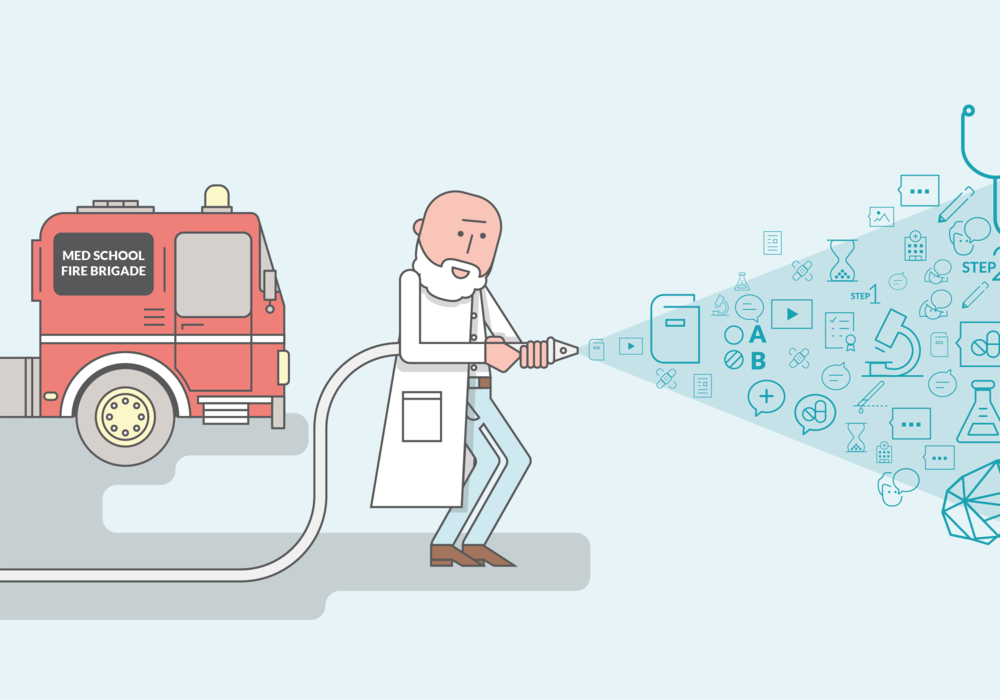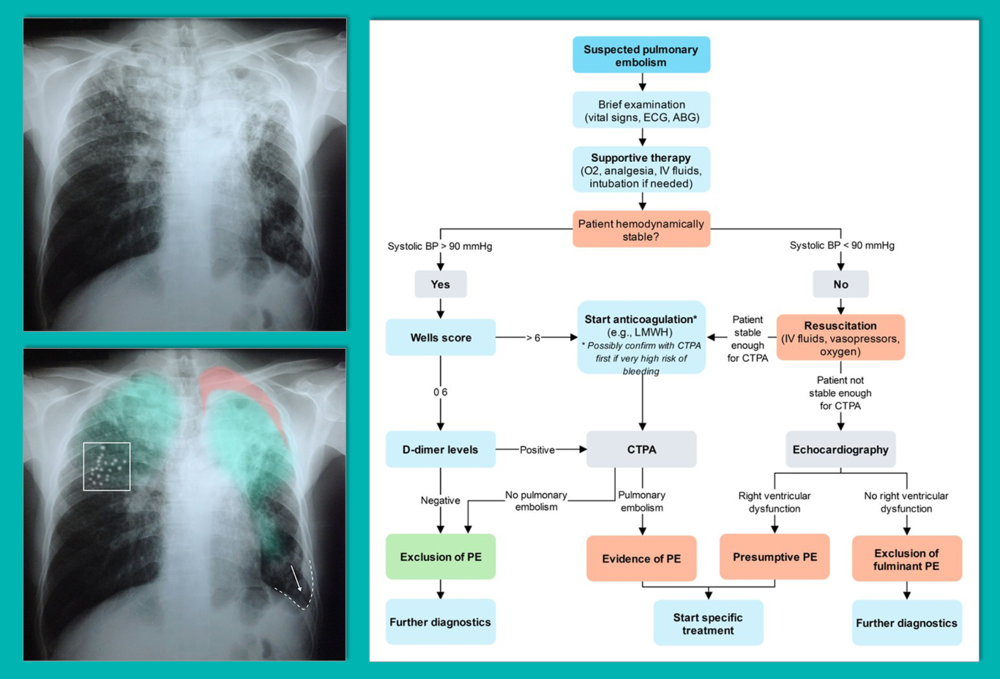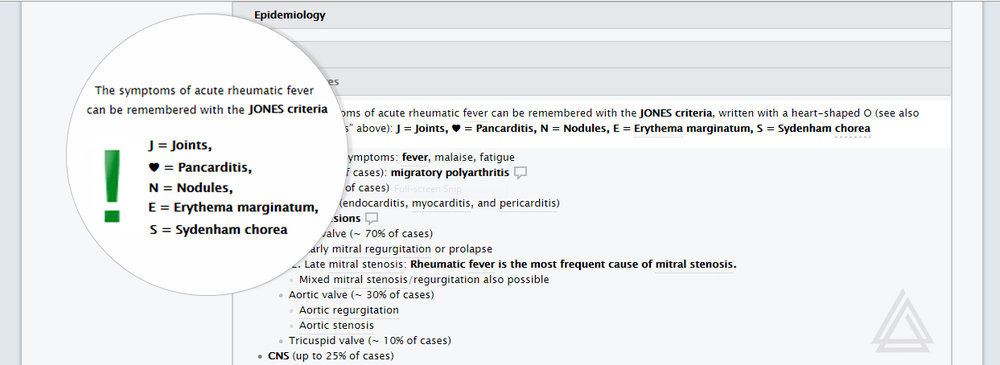Drinking from the Fire Hose? Med Student Learning Styles

A 2017 survey conducted by AMBOSS asked 71 third and fourth year U.S. medical students about their study habits, resources and medical exam preparation. Is it surprising that medical tomes didn’t even make the list? According to the survey, students prefer Qbanks and digital resources.
The results from this survey reveal a fundamental shift in the way medical students are studying for exams. Out with the old - in with the new! Textbooks, especially large, heavy, scholarly ones, while still important, have become a secondary reference for medical students prepping for exams.
While textbook reading is defined as a “passive” studying technique, Qbanks and digital resources are examples of “active” learning tools, in which the user interacts with the informational resources - answering questions or watching interactive video demonstrations.
If Qbanks and digital resources are so popular among medical students, is there a noticeable generational shift in learning styles? Researchers would suggest so. According to a recent article in BMC Medical Education, more and more medical students are relying on a variety of learning resource to prep for exams. Textbooks just don’t seem to provide students with the same opportunity to incorporate multiple learning styles into optimizing study practices for exams, which include visual, audio and memorization techniques.
A common analogy for learning in medical school is “drinking water from a fire hose,” where the pace and volume are significantly ramped up in comparison to other college programs.
"No wonder the learning habits of med students must encompass a broad range of learning styles and skills."
Learning Visually
Take, for example, visual learning. Watching online videos, tutorials and lectures are popular among these types of learners. Learning visually is necessary in medical education, where knowing how to read an X-ray or EKG is vital for USMLE exams and clinical rotations.

Training the Auditory Senses
According to a 2016 article in the International Journal of Medication, training the auditory senses is a critical aspect of diagnosis that needs to be addressed in medical education. Physical examination skills are important for future physicians, particularly for sensory and subjective aspects of learning. Learning the skills of listening to lung sounds or heart beats is key during clinical rotations, residency and future practice. Honing these skills early on provides medical students with the necessary competencies in sensory awareness.
"If you want to make something memorable, you first have to make it meaningful." - Joshua Foer
Remembering More
Constantly searching for brain hacks that will help you in learning and retaining information more efficiently? Mnemonics can provide the cure, with a focus on memory aid. Ranging from well-established techniques, such as spaced repetition to recalling high-yield content through memory association (i.e. Baker-baker paradox), mnemonics are powerful memory hooks for associations. By associating a context with medical terms, connections are more strongly solidified than weak word sodalities. Developing a systematic approach which organizes and contextualizes high-yield information for exams is an effective learning method for medical students. The stronger the association, the better!

While textbooks won’t be going away anytime soon, there is a significant demand for digital resources which offer high-yield content. Innovative and interactive apps and digital resources are crucial for assisting medical students in retaining information, simplifying difficult concepts and prepping for Shelf and Step exams. Medical students seek and need a variety of inputs to help them succeed. If you are drinking from the proverbial fire hose, attacking all learning styles from one online platform may help you break the inefficient learn-forget cycle!
The 2017 AMBOSS survey included 71 participants from five US medical schools.
References:
Bickerdike, A., O'Deasmhunaigh, C., O'Flynn, S., & O'Tuathaigh, C. (2016). Learning strategies, study habits and social networking activity of undergraduate medical students. International Journal of Medical Education, 7, 230–236.
Samarakoon, L., Fernando, T., Rodrigo, C., & Rajapaske, S. (2013). Learning styles and approaches to learning among medical undergraduates and postgraduates. BMC Medical Education. DOI: 10.1186/1472-6920-13-42
